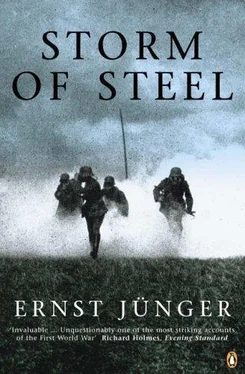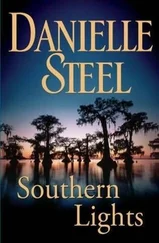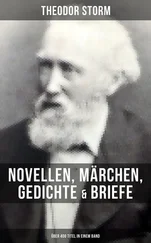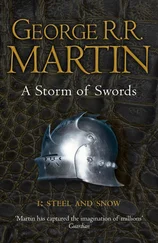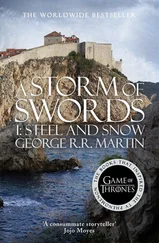To come to their aid, I led cadet Mohrmann’s section forward along Hedge Trench. We were forced to pause by a rain of Stokes bombs. One splinter struck me in the chest, but was stopped by the clasp of my braces.
A vehement artillery bombardment now began. All around geysers of earth spouted up out of various-coloured steam, and the dull thump of shells bursting deep in the earth mingled with a high-pitched metallic yowl that sounded like a circular saw. Blocks of iron burst with incredible vehemence, interspersed with the singing and flickering of clouds of splinters. As there was every prospect of facing an attack, I put on one of the steel helmets I saw lying around, and hurried back to the firing trench with a few companions.
Figures surfaced in front of us. We laid ourselves on the mangled trench walls and fired away. Next to me, a very young soldier was fumbling with the trigger of his machine-gun, and not getting off a single shot, so I tore the thing from him. I fired some shots, but then as in a nightmare the thing failed again; luckily, though, the attackers vanished into trenches and craters as the artillery heated up. As for our own – it seemed to be directed equally against both sides.
As I went into my bunker, followed by an orderly, something struck the trench wall between us, ripping the helmet from my head and hurling it away into the distance. I thought I had caught a whole load of shrapnel, and lay half numbed in my foxhole, whose rim a moment later was struck by a shell. The little space was filled with thick smoke and a long splinter shattered a jar of gherkins at my feet. So as not to be crushed to death, I crawled back out into the trench, and from below urged the two orderlies and my batman to be alert.
It was a grim half-hour; the already reduced company was further mangled. After the artillery fire had abated, I walked the line, inspected the damage, and established that we were down to fifteen men. The long sector could not be held by so few. Therefore I assigned Mohrmann and three men to defend the barricade, and with the rest formed a hedgehog in a deep crater behind the back wall. From there, we could take a hand in the fight for the barricade, or, if the enemy succeeded in breaking into our line, attack him with hand-grenades from above. In the event, further action was limited to a few light mortars and rifle-grenades.
On 27 July, we were relieved by a company of the 164th. We were utterly exhausted. The commander of the relieving company was badly wounded on the way out; a few days later, my bunker was hit, and his successor buried. We all sighed with relief when we finally turned our backs on Puisieux and the storm of steel of the finale.
Their advances showed how much the enemy’s strength was increasing, supplemented by drafts from every corner of the earth. We had fewer men to set against them, many were little more than boys, and we were short of equipment and training. It was all we could do to plug gaps with our bodies as the tide flooded in. There wasn’t the wherewithal for great counter-attacks like Cambrai any more.
Later on, when I thought of the way the New Zealanders triumphantly ran up and forced our sections into that deadly bottleneck, it struck me that that was exactly what had happened on 2 December 1917 at Cambrai, but with roles reversed. We had looked into a mirror.
On 30 July 1918, we moved into rest quarters in Sauchy-Lestree, a delightful spot in the Artois, surrounded by water. A few days later, we marched further back to Escaudoeuvres, a quiet working-class suburb, cast out, as it were, by the rather fancier Cambrai.
I occupied the best bedroom of a Northern French working-class family, on the Rue-des-Bouchers. The usual massive bed was the principal item of furniture, a hearth with red and blue glass vases on the mantelpiece, a round table, chairs, and a few colour prints on the walls: such things as ‘vive la classe’ and ‘souvenir de premiere communion’. A few postcards completed the decor. The view out of the window was of a graveyard.
The bright full-moon nights favoured the visitations of enemy aircraft, which gave us an appreciation of the growing superiority they enjoyed in terms of weaponry. Every night, several squadrons of bombers floated up and dropped bombs of extraordinary destructiveness on Cambrai and its suburbs. What bothered me throughout was less the mosquito-like drone of the engines and the clumps of echoing explosions than the timorous scuttling downstairs of my hosts. The day before my arrival, admittedly, a bomb had gone off just outside the window, which had hurled the master of the house, who had been sleeping in my bed, clear across the room, broken off one bedpost, and riddled the walls. It was, perversely, this circumstance that gave me a feeling of security, because I did at least partly subscribe to the old warrior’s superstition that the safest place to be is in a new crater.
After one day of rest, the old training regimen set in again. Drill, lessons, roll-calls, discussions and inspections filled a great part of the day. We took up an entire morning agreeing on a verdict in a court of honour. For a while we were given nothing to eat in the evenings except cucumbers, which the men dubbed ‘vegetarian sausages’.
Most of all, I was busy with the training of a small shock troop, since I had come to understand in the course of the last few engagements that there was an increasing rearrangement of our fighting strength in progress. To make an actual breach or advance, there was now only a very limited number of men on whom one might rely, who had developed into a particularly resilient body of fighters, whereas the bulk of the men were at best fit to lend support. Given these circumstances, it might be better to be at the head of a small and determined group than the commander of an uncertain company.
I spent my free time reading, swimming, shooting and riding. Some afternoons, I would fire over a hundred bullets in target-practice at tin cans and bottles. When I rode out, I would come upon propaganda leaflets which the enemy had taken to dropping in ever greater numbers as morale bombs. They were made up of political and military whisperings, and glowing accounts of the wonderful life to be had in British prisoner- of-war camps. ‘And just remember,’ one of them said, ‘it’s not that hard to lose your way at night, on your way back from getting food, or a digging detail!’ Another reproduced the text of Schiller’s poem, ‘Free Britannia’. These leaflets were sent up on hot-air balloons, and were carried by favourable winds across the lines; they were bundled up with thread, and set adrift by a timed fuse after floating for a certain period of time. A reward of thirty pfennigs apiece showed that the high command did not underestimate the threat they posed. The costs were levied on the population of the occupied territory.
One afternoon, I got on a bicycle and pedalled into Cambrai. The dear old place was in a dire state. The shops and cafes were closed down; the streets seemed dead, in spite of the field-grey waves that kept washing through them. I found M. and Mme Plancot who had entertained me so kindly a year ago, delighted to see me again. They told me that things in the town had got worse in every respect. Most of all, they complained about the frequent air attacks, which compelled them to rush up and down stairs, often several times a night, arguing whether it was better to be killed outright by a bomb in their first basement, or buried alive in the second. I felt very sorry for these old people with their worried expressions. A few weeks later, when the guns began to speak, they were finally forced to leave the house they had spent their lives in.
At eleven o’clock on 23 August, I had just dropped off to sleep when I was woken by loud knocking on the door. An orderly had come with marching orders. All day, the rolling and stamping of unusually heavy artillery fire had blown across from the front, and had reminded us on the exercise grounds, over our lunch and over games of cards, not to be too hopeful as far as the further duration of this rest period was concerned. We had coined an onomatopoeic front-line expression for this distant sound of cannons: ‘It’s whumping.’
Читать дальше
